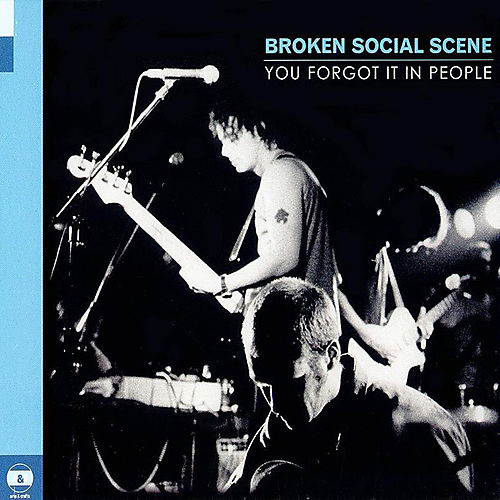
40.
Broken Social Scene
“Cause=Time”
[Arts & Crafts / Paper Bag; 2002]
Interpreting Broken Social Scene’s “Cause=Time” isn’t easy; its ambiguity leaves it open to a multiplicity of readings. Some have argued that it is a treatise on Christian fanaticism; others proffer its sexual charge, a theory underlined by Kevin Drew’s hushed, erotic singing. Indeed, it could well be some kind of sinister combination of both the religious and the sexual. There is an inkling of contempt throughout the chorus, yet Drew’s voice remains slightly remote and unaffected; it is not clear whether a backlash against the bandwagon and the need to identify with a particular movement or group, or the reverse, in wanting to “fuck the cause,” is viewed with disdain. All literary analysis aside, the track is special for its exceptional guitar work; roaring, fiery riffs backed by the crash of Justin Peroff’s energetic cymbal render it You Forgot It in People’s loudest, most feisty moment, despite the unassuming vocal delivery.
– Will Monotti
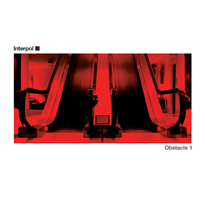
39.
Interpol
“Obstacle 1”
[Matador; 2002]
I can tell you exactly where Interpol went wrong, at least in my opinion: when Paul Banks started standing the proper distance away from the microphone sometime around Antics. I remember reading something a while back mentioning how on Turn on the Bright Lights, Banks more or less shouted them from across the room while recording, or something to similar effect. Just listen to “Obstacle 1” as compared to “NARC,” for instance, and you’ll notice a direct correlation between how awesome each song is and the fervor in Banks’s delivery. There are few things I can think of from this decade that are as fun to shout along with as “YOU GO STABBING/YOURSELF IN/THE NECK.”
– Bill Delaney
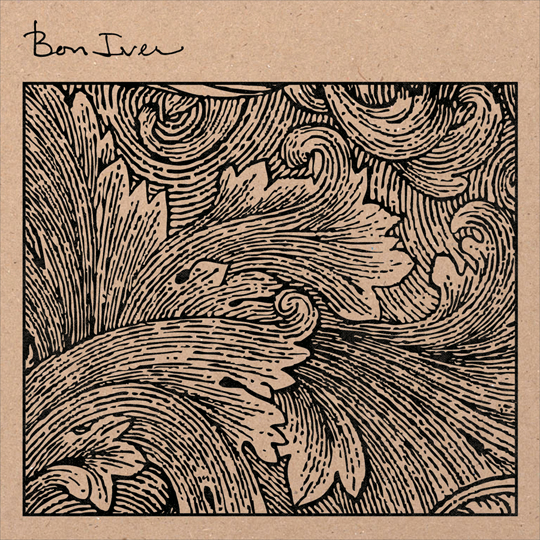
38.
Bon Iver
“Skinny Love”
[Self-Released / Jagjaguwar / 4AD; 2007]
There’s a performance of “Skinny Love” that sticks in my head. It was of Justin Vernon singing and strumming alone on Jools Holland about two years ago. I watched and honestly didn’t like it. The “my my my” bridge was changed and it thus sounded wrong. But considering this now, I realise, of course it is different to the version recorded on For Emma, Forever Ago because it’s a different place and a different time. The context is importance; Vernon isn’t alone in his cabin, he’s surrounded by hundreds of people. He still sings passionately, but not in the same solemn and lonesome manner he likely did when sitting alone in Wisconsin. Here his feelings are in full public view after the release of his album. He sings unabashed, still likely heartbroken. Upon writing this, I watched the video of him performing on Jools Holland again and I subsequently realise back then when I first saw it, I was being sentimental over the original because this time I barely noticed the changes and instead was nearly brought to tears. I don’t think it matters what version of “Skinny Love” I hear, I’ll still always be impressed with it melancholic ardour.
– Ray Finlayson

37.
Yeasayer
“2080”
[We Are Free; 2007]
Yeasayer’s breakout hit is anthemic, brooding, celebratory and catchy – but have you ever noticed how slow it is? It’s weird, because it never feels slow-burning, it’s more like the flame is voraciously devouring the oxygen around it in a curiously careful manner. The band trudges through a scorching desert only to occasionally come upon an oasis mirage (hint: that’s the chorus!), but it’s just that – a mirage. You can hear the facade start to destabilize and fade in the strangely detuned horns behind the rapturous vocals, until it completely disappears and we’re right back in the middle of the desert. Like its vaguely futuristic title suggests, there’s a sense of simultaneous wonder, dread, and anxiety in this track; nothing sounds exactly like how it should, how you’d expect. When the shouted bridge hits, it’s the sound of anarchy, of dystopia – replaced immediately by that chorus again. I’m not sure I entirely believe them when they sing “It’s a new year // I’m glad to be here,” but ignore the underlying dimension of uncertainty and it’s just a hell of a tune anyway.
– Andrew Ryce
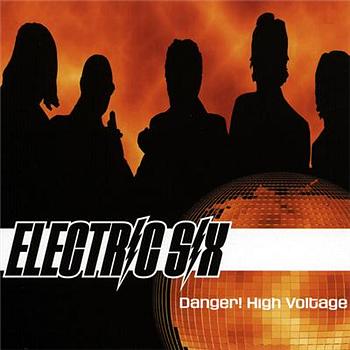
36.
Electric Six
“Danger! High Voltage”
[XL; 2003]
Who knows what Electric Six were thinking when they wrote “Danger! High Voltage,” but they created a hilarious, grooving, instantly danceable track that sounds something The Rapture possibly could have done, if they had a bigger sense of humor. With the band members taking on different funny voices throughout the song, it’s hard to take it too seriously, although you so badly want to, given that funky instrumentation. The song was featured on the Charlie’s Angels: Full Throttle soundtrack in 2003, which helped propel it to instant dance classic for house parties and clubs this decade.
– Arika Dean
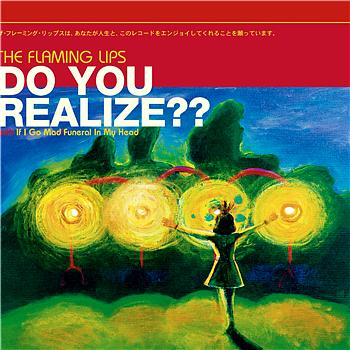
35.
The Flaming Lips
“Do You Realize??”
[Warner Bros.; 2002]
On “Do You Realize??” The Flaming Lips took several obvious but often overlooked statements about life and death, strung them together in a simple melody, added some synths and a huge chorus and created one of the most life-affirming tracks ever released. The fact that “Do You Realize??” has the power to cheer you up when you’re down, intensify your good mood and overall to just make you happy to be where you are, through such a simple means, is what makes it a truly special song.
– Rob Hakimian
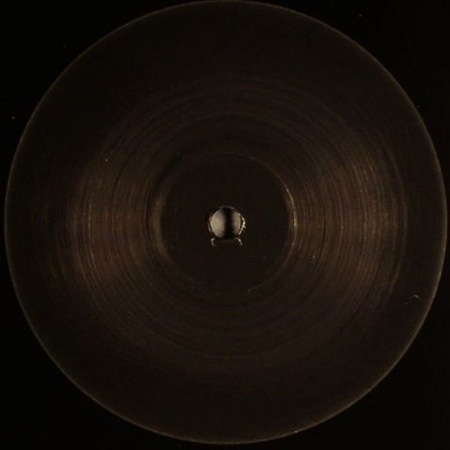
34.
Burial / Four Tet
“Moth”
[Text; 2009]
Isn’t it odd that when two of your favourite artists collaborate and the result sounds exactly as you’d expect it to, it’s still somehow disappointing? Recent examples include Them Crooked Vultures, Dead Weather, you name it; thankfully, “Moth” is no commoner. Rather, it’s the nobility towering over many past failed collaborations and supergroups. “Moth” is the track bearing the most Four Tet-influence on his and Burial’s split 12” single from 2009, but make no mistake, Burial is certainly detectable here. The track treads carefully at a steady 4/4, but it’s the embellishments in between the beats that are the most addictive, the most appealing. Everything here is a bit musty – aged even – like it’s been stuck in an attic for a few years. The manipulated, pitch-shifted vocals (obviously Burial’s work) that pop up occasionally sound captive and hesitant, and the main synth melody that emerges after the first few minutes of ambience is heartbreaking, thumping distantly and pathetically, as if trying to escape but already resigned to its fate. It’s heartbreaking when it isn’t paradoxically uplifting; if its austerity doesn’t bring you down then its beauty will be positively life-affirming. It doesn’t matter that it was made by two people who are often completely disassociated with the dancefloor or the particular genre itself – “Moth” is unquestionably one of the greatest techno tracks, if not of the past decade, then ever.
– Andrew Ryce
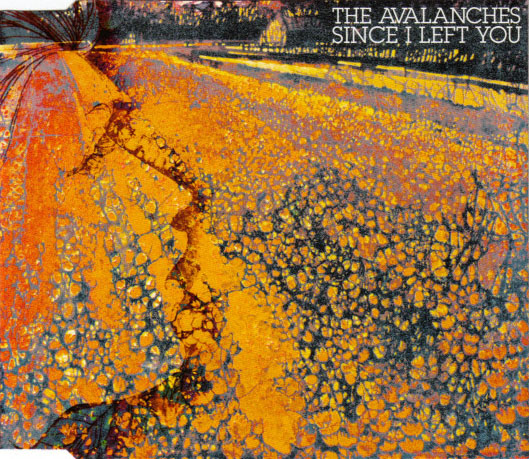
33.
The Avalanches
“Since I Left You”
[Modular; 2000]
Ostensibly, the opener and eponymous lead single to the Avalanches’ debut is simple. Of course, there are layers upon layers of samples from here, there, and everywhere, but once it hits its groove, “Since I Left You” only deviates slightly. Lucky, then, that the groove it strikes is terrific; a mashup of euphoric strings, xylophone, spoken word, funky rhythms, and a girl singing what I’m sure is a deliberate mondegreen. It’s also, in my mind, perhaps the happiest song ever made. The gaudy beginning with Mediterranean guitar and a welcome to paradise is soon usurped by a gut-punching, atmospheric flute sample, which, somehow, unleashes bucket upon bucket of nostalgia. It might be parading as a love song, but to me, “Since I Left You” evokes the sensation of childhood: blithe, filled with pleasure and so deceptively simple.
– Will Monotti
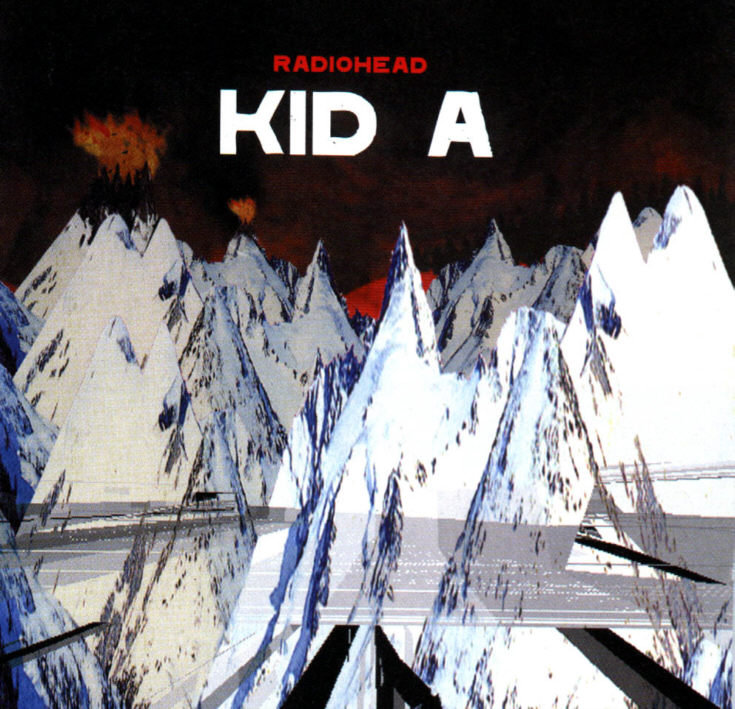
32.
Radiohead
“Idioteque”
[Parlophone / Capitol; 2000]
“Idioteque” was one of the songs on Kid A that got Pablo Honey purists moaning about Radiohead using electronica to create songs. Those purists can say what they want, but “Idioteque” remains one of the most brilliant and chilling Radiohead songs in the band’s catalog. The post-apocalyptic piece develops out of early digital samples from Paul Lansky and a professor, creating the coldest sonic landscape that somehow still feels human. Thom Yorke nervously yet convincingly shouts, “This is really happening!” halfway through the song, provoking deep, dark emotions you weren’t even sure that you had.
– Arika Dean
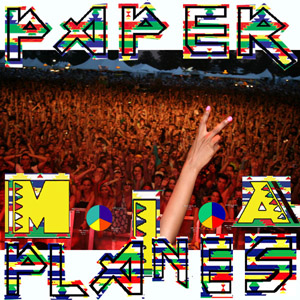
31.
M.I.A.
“Paper Planes”
[XL; 2007]
It’s hard to imagine this song in its post-Pineapple Express, post-Slumdog Millionaire context, before it became that song everyone knew with that chick rapper and the children singing about robbing people. One thing that isn’t so hard to imagine, though, is why it became so popular, why everyone and their mothers (never has this statement been more literally true) went nuts over it – it’s exciting, it’s catchy, and it’s the sound of fun. This is what the third world is, and as much as we might groan at M.I.A. for commoditizing and even further marginalizing the developing world, never before has the East/West crossover song sounded so… apt, so appropriate. Thing is, when you’re dirt poor and have nothing to do, the only way you can try to escape it is through fun, through play. But you still can’t escape your reality. It’s a matter of facing the reality and transcending it, which is exactly what this song does, playfully acknowledging the unfortunate situation but finding joy and levity in it anyway. It might seem a bit insensitive, or dangerously close to being dragged down by its own solipsistic narcissism, but it narrowly avoids either of these. It’s a perfect statement about the disadvantaged part of our world; we’ve put them in their position, so they’ll get back at us and have fun doing it at the same time. It’s not a solution, but it’ll do for now.
– Andrew Ryce

